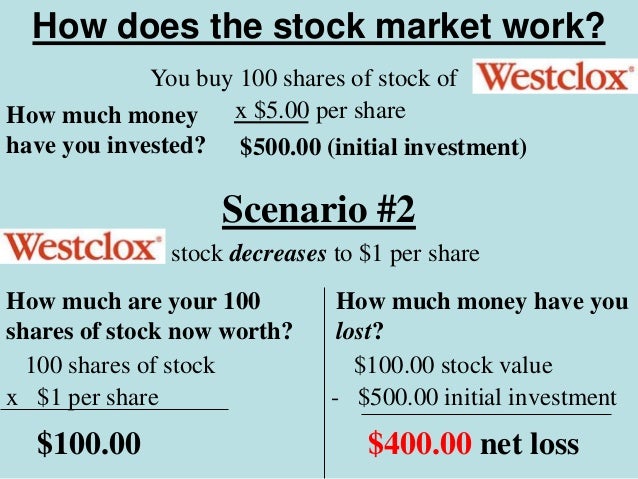If the idea of purchasing the stock exchange terrifies you, you are not alone. Individuals with very minimal experience in stock investing are either horrified by horror stories of the average investor losing 50% of their portfolio valuefor example, in the two bear markets that have currently happened in this millennium or are seduced by "hot tips" that bear the pledge of big benefits but seldom pay off.
The reality is that purchasing the stock exchange brings threat, but when approached in a disciplined way, it is one of the most efficient ways to develop one's net worth. While the value Take a look at the site here of one's home generally represents most of the net worth of the typical individual, the majority of the affluent and very rich usually have the majority of their wealth invested in stocks.
Key Takeaways Stocks, or shares of a company, represent ownership equity in the firm, which give investors voting rights in addition to a recurring claim on corporate revenues in the kind of capital gains and dividends. Stock exchange are where individual and institutional investors come together to buy and sell shares in a public place.

An individual or entity that owns 100,000 shares of a business with one million exceptional shares would have a 10% ownership stake in it. The majority of business have outstanding shares that run into the millions or billions. Typical and Preferred Stock While there are two primary kinds of stockcommon and chosenthe term "equities" is associated with common shares, as their combined market worth and trading volumes are numerous magnitudes bigger than that of preferred shares.
Preferred shares are so named since they have choice over the common shares in a company to get dividends As properties in the occasion of a liquidation. Common stock can be more categorized in terms of their ballot rights. While the standard facility of common shares is that they should have equivalent voting rightsone vote per share heldsome companies have dual or multiple classes of stock with different ballot rights attached to each class.